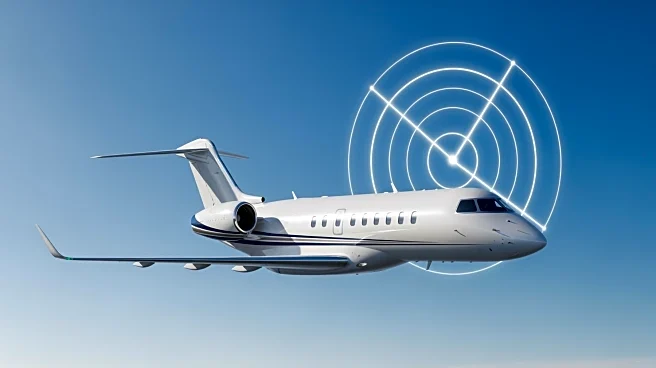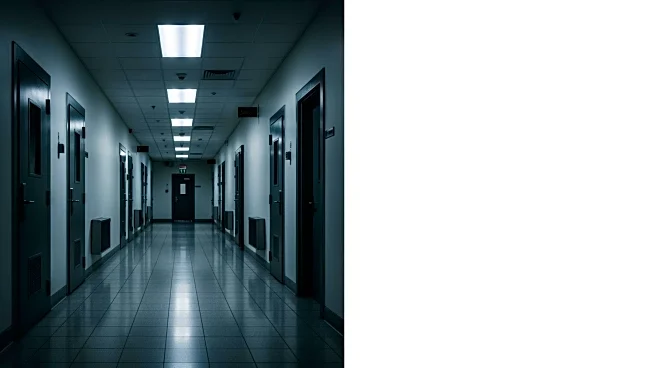What's Happening?
ExecuJet MRO Services South Africa has successfully completed a series of Automatic Dependent Surveillance-Broadcast (ADS-B) installations across various business jet types. This follows a directive from the South African Civil Aviation Authority (SACAA)
mandating that all aircraft operating in South African airspace be ADS-B Out compliant. The installations were performed by ExecuJet’s avionics team at Johannesburg’s Lanseria International Airport on several Bombardier, Learjet, Embraer, Hawker, and Beechcraft platforms. The upgrades are aimed at enhancing real-time tracking and improving the safety and efficiency of airspace management.
Why It's Important?
The ADS-B compliance upgrades are crucial for maintaining the safety and efficiency of airspace management in South Africa. By ensuring that aircraft are equipped with the latest surveillance technology, ExecuJet is helping to meet international standards and improve the tracking capabilities of business jets. This move is significant for business jet owners and operators, as it aligns with global aviation safety requirements and enhances operational capabilities. The upgrades also reflect the growing importance of advanced avionics in modern aviation, which can lead to better air traffic management and reduced risks of mid-air collisions.
What's Next?
ExecuJet plans to continue with additional ADS-B upgrades on more aircraft before the end of the year. As an authorized dealer for major global avionic equipment manufacturers, ExecuJet is well-positioned to support further complex avionic upgrades. The ongoing compliance efforts may prompt other aviation service providers to follow suit, potentially leading to widespread adoption of ADS-B technology across the region. This could result in improved airspace management and safety standards, benefiting both operators and passengers.
Beyond the Headlines
The implementation of ADS-B technology in South Africa could have broader implications for the aviation industry, including potential regulatory changes and increased demand for avionics expertise. As more countries adopt similar mandates, there may be a shift towards more standardized global aviation safety protocols. This could also drive innovation in avionics technology, as manufacturers seek to develop more advanced systems to meet evolving compliance requirements.















